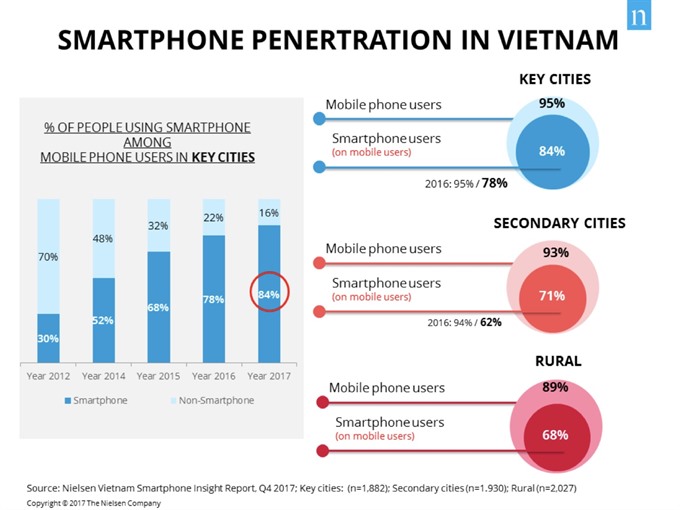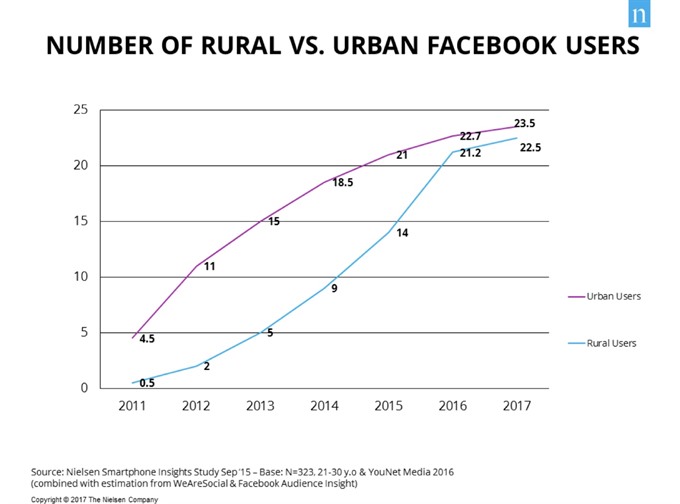 Economy
Economy

The number of people using smartphones, among mobile phone users, accounts for 84 per cent in 2017, compared to 78 per cent a year ago.
 |
HÀ NỘI — The number of people using smartphones, among mobile phone users, accounts for 84 per cent in 2017, compared to 78 per cent a year ago.
This was revealed in the Nielsen Việt Nam Smartphone Insights Report 2017.
In secondary cities, 71 per cent of local people used smartphones amongst 93 per cent of people who used mobile phones. More notably, in rural areas, while 89 per cent of the population owned a mobile phone, 68 per cent of them possessed a smartphone.
“The rapid uptake of connected devices, especially smartphones and tablets, is inevitable in our country. This could correspond to the fact that smartphone brands are offering consumers abundant choices at affordable and reasonable prices. Another reason is that consumers are enjoying the rising standard of living and expressing their desire for connectivity anywhere and anytime,” said Đoàn Duy Khoa, director of Consumer Insights, Nielsen Việt Nam.
 |
Earlier this year, Nielsen conducted another study in partnership with Younet Media to better understand the trends of rural consumers. The results show that social media has emerged as one of the cornerstones of information gathering, entertainment and communication with relatives, friends and children, where 22.5 million people use Facebook in the countryside, as compared to 23.5 million users coming from urban areas.
“This plays an instrumental role in media consumption shifting beyond traditional media formats such as broadcast and cable TV, and also beyond traditional time parts. For media owners and advertisers, it is becoming increasingly important to understand both urban and rural consumers’ viewing habits in order to deliver the right content at the right time,” Khoa added.
Nielsen Holdings plc is a global performance management company that provides a comprehensive understanding of what consumers watch and buy.
The Nielsen Việt Nam Smartphone Insights Report 2017 looks at market landscapes, smartphone brand performance and smartphone usage and attitudes, reveals major trends on smartphone penetration and segment movement, as well as product life cycle, buying factors, brand satisfaction and expectation of consumers towards a brand. — VNS









